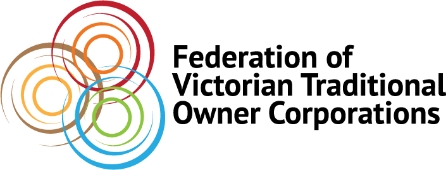Traditional Owners of the land now known as Victoria have been re-building their nations for many years and are the experts in defining what nation-building means in the Victorian context.
Despite long struggles to have rights recognised by the legal instruments of the settler state – struggles still ongoing – Victorian Traditional Owners continue to explore and define how their communities are brought together to make decisions and realise rights to Country.
Nation-building – or re-building, as it’s often also called – evolved out of North America, and the academic research that has accompanied the re-building of First Nations communities in the territories now known as the United States and Canada.
Nation re-building requires a fundamental power shift away from the state to Traditional Owners.
The Victorian Government is preparing to negotiate Nation-level treaties with Traditional Owner groups alongside the state-wide treaty to be negotiated with First Peoples’ Assembly of Victoria. Current and future treaty negotiations will shape our understanding of nation re-building over the coming years.
The Federation works with Traditional Owner groups to support their sustainable development, creating greater capability and capacity to activate their rights, interests and objectives.
The Federation is committed to enabling Traditional Owner groups to:
- determine their own nation-building goals and agreement-making processes
- build sustainable capability and capacity in governance and economic independence
- build recognition as vital social, economic and cultural institutions, strengthening the roles and functions of Traditional Owner Corporations.
A key function of the Federation’s nation-building work is administering the $5.835 million Nation-building Resource Pool, which is a core component of the Victorian Government’s Traditional Owner Nation-building Package.
The Traditional Owner Nation-building Package was developed in response to strong advocacy from the Federation and other stakeholders.
It aims to enable Traditional Owners across Victoria to engage in nation-building activities and prepare for future treaty negotiations if they choose to do so.
The package’s programs span three streams:
- Nation (delivered by the Federation): Nation-building Resource Pool
- Formation (First Nations Legal & Research Services): Traditional Owner mapping and formal recognition support delivered
- Foundation (Victorian Government’s First Peoples – State Relations group): Previous programs included the Strong Roots for Our Futures Program and Traditional Owner Engagement Officers
The package included $13.6 million in the 2019-20 Victorian Budget to enable a wide range of nation-building activities, services and resources for Traditional Owner groups, and was extended with a further $11.12 million in 2021-22.
The Nation-building Resource Pool provided $5.835 million in flexible funding for nation-building projects that could be delivered by June 2025.
The funding was available on an equitable basis to Victorian Traditional Owner groups with formal recognition to engage in nation-building activities and prepare for future treaty negotiations or other formal recognition pathways. Projects were designed and are being led by each Traditional Owner group based on their identified goals and priorities.
Ten of the 11 formally recognised Traditional Owner groups in Victoria have been allocated $530,000 each from the Resource Pool.
The Resource Pool is administered by the Federation, with funding decisions made by a Steering Committee including representatives from the Federation, First Nations Legal & Research Services and First Peoples – State Relations.
More information
For more information please contact Kurt Sutton on 0409 788 501.
Ten Traditional Owner Corporations have been funded $530,000 each to undertake nation-building projects.
Barengi Gadjin Land Council
- This project has two nation-strengthening components. The first supports bringing families together on Country to strengthen connection and kinship, the second is a Wergaia language revival project. Both components have a strong focus on engaging Elders and youth and facilitating intergenerational knowledge sharing and connection.
DJAARA
- This project will progress a Treaty or Treaty-like agreement with the Local Government Authorities within the Dja Dja Wurrung Recognition and Settlement area.
- A second project will reengage and reenergise Djaara following the isolation and disconnection experienced throughout the COVID-19 pandemic.
Eastern Maar Aboriginal Corporation
- This project will develop organisational and community capacity to ensure the long-term growth and sustainability of the corporation. This will be undertaken through the delivery of targeted cross-functional and corporation-wide projects and activities to strengthen governance, management of Country, economic independence, and preparations for undertaking negotiations.
- A second project will deveop a language preservation program and framework for identified languages within the Eastern Maar estate, implementing a key goal from Eastern Maar’s country plan “Meerreengeeye Ngakeepoorryeeyt (Our Country far seeing)” to reinvigorate language/mother tongue.
First Peoples of the Millewa-Mallee
- This project will develop a Master Plan for Ned’s Corner in preparation for the handover of the property to Traditional Owners. Working with the community to identify the right bio-cultural programs, the project will enable social and economic development for the Corporation. The Master Plan will focus on project planning to include intergenerational knowledge sharing, as well as identifying and protecting cultural heritage for future generations.
- The second, interconnected project will be a Governance and Organisational Strengthening Project. The focus and anticipated outcomes of family re-engagement and healing built into this project will build the foundations for a stronger united community. This will be achieved by governance strengthening and reform, improved communications and strategic and organisational planning.
Gunditj Mirring Traditional Owner Corporation
- This project supports engagement in an extensive and comprehensive community engagement process to identify community aspirations for the future. Gunditjmara Treaty and Nation-building workers were trained and employed to work with family groups to strengthen treaty readiness by delivering information on Treaty, nation-building and economic strategy and gathering community aspirations. A 2-day community gathering will discuss shared goals and promote community togetherness.
- A second project assists clan/family groups to build on previous nation-building work to participate in the development of a Nation Building and Economic Strategy Framework. The Framework will have a clear vision and purpose, ensuring a self-government approach and economic independence to enable true self determination, decision making and strengthening cultural connection and identity. This will empower family/clan groups to have a voice in important conversations and contribute to decision making.
Gunaikurnai Land and Waters Aboriginal Corporation
- This project supports a concerted engagement process of information, education and empowerment to build capacity in preparation for Treaty negotiations. The focus is on strengthening family/clan group conversations through gatherings and providing culturally appropriate training in corporate governance and administrative skills to best prepare for future treaty negotiations.
- A second project supports Stage 2 of GLaWAC’s Bushfoods Project – Bush to Bowl. This project will grow and source a local supply chain of bushfoods and plants direct to Gunaikurnai’s Bush Café. The project will provide training and employment and opportunities for sharing traditional knowledge. The project will strengthen cultural heritage and knowledge and strengthen self-determination by increasing leadership and participation of the community in the bushfoods industry.
Wadawurrung Traditional Owners Aboriginal Corporation
- This project will develop a Wadawurrung Traditional Owner language dictionary (including a progressive web application), and catalogue and return to Country a large collection of 50 – 100,000 artefacts that have been returned to the Community.
The Victorian Government is preparing to negotiate Nation-level treaties with Traditional Owner groups alongside the state-wide treaty to be negotiated with First Peoples’ Assembly of Victoria.
The Federation’s treaty discussion papers outline the foundations and potential scope for a comprehensive treaty model for Victoria.
Discussion papers
- Understanding the Landscape: The Foundations and Scope of a Victorian Treaty
- Sovereignty in the Victorian Context
- UNDRIP and Enshrining Aboriginal Rights
- Aboriginal Control of Aboriginal Affairs: An Aboriginal Parliament and Public Service
- A Framework for Traditional Owner Treaties: Lessons from the Settlement Act
- A Comprehensive Treaty Model for Victoria
Victorian Traditional Owners are leading the design and implementation of innovative co-governance structures that enable the redistribution of power from the state to Traditional Owner groups.
Traditional Owner-developed strategies facilitated by the Federation include:


